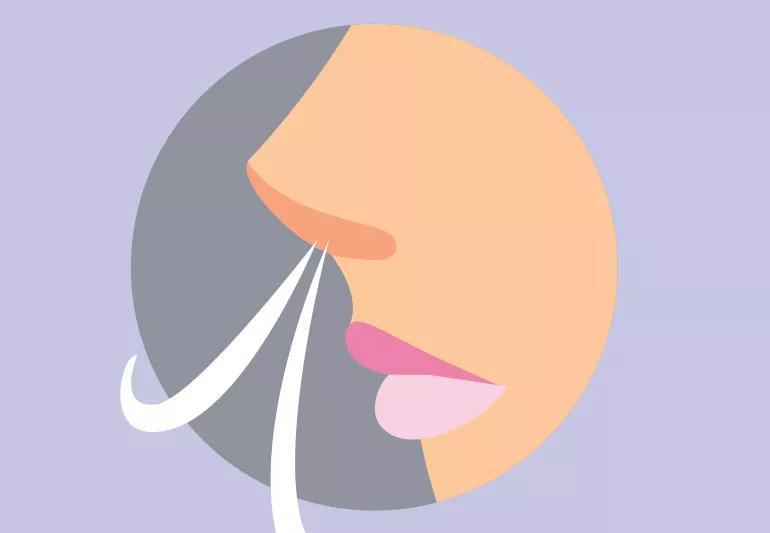Many people don't know they have the problem

When you close your mouth and take a deep breath does the air flow easily through both sides of your nose? Or is your nose making it harder for you to breathe freely?
Advertisement
Cleveland Clinic is a non-profit academic medical center. Advertising on our site helps support our mission. We do not endorse non-Cleveland Clinic products or services. Policy
A surprising number of people — more than one-third of the population — are unknowingly living with a deviated septum. That means the cartilage that divides the nasal passage is crooked or uneven, making one side narrower than the other.
But not everyone who has a deviated septum requires intervention for it. Many people have no symptoms.
However, for some people, this condition can make illnesses more severe and cause other problems as well, says head and neck specialist Kyra Osborne, MD.
You can have a deviated septum for a number of reasons, she says.
“If you’ve broken your nose or had any sort of trauma to the face, you can develop a deviated septum,” she says. “In many cases, people don’t even know they’ve broken their nose or had a serious enough injury. But it can also happen from birth — just from the pressure of the birth canal. The cartilage may grow in a crooked manner.”
There are several problems you can experience if you have a deviated septum. It can cause other conditions or make certain illnesses worse. Here are the five most common issues:
Advertisement
Whether you’ve had your deviated septum from birth or developed one after a face or nose injury, your doctor likely can diagnose the problem with a physical exam.
A nasal steroid spray can sometimes correct the issue, Dr. Osborne says. If not, you may need surgery to straighten the septum. (It’s typically an outpatient procedure.)
If snoring is your main issue, there may be an even simpler fix. “In some cases, sleeping with the head of the bed elevated can help alleviate some snoring,” she says.
It’s a good idea to consult with your doctor if you suspect you have a deviated septum. Even if you end up needing surgery to correct the problem, it’s worth it. Once your nose heals, it will no longer work against you when you take a deep breath. And you may leave a whole host of other problems behind as well.
Advertisement
Learn more about our editorial process.
Advertisement

This dangerous practice can cause burns or a ruptured eardrum, and can make earwax blockages worse

You might have a sensitive gag reflex — but gagging while brushing can also be a result of certain medical conditions

Mold exposure can cause allergic reactions, asthma and skin rashes

You can find sweet relief by swallowing, yawning and doing specialized maneuvers

Upper respiratory infections, seasonal allergies, excessive use or talking too loudly can make it difficult to speak

Staying calm, sitting up straight and gently pinching the sides of your nostrils can help a bloody nose go away faster

Investing in a humidifier and keeping yourself hydrated can help you stay healthy despite dry air

Hearing aids can be enough for some people, but other devices — like for your phone, TV and fire alarm — can help, too

If you’re feeling short of breath, sleep can be tough — propping yourself up or sleeping on your side may help

If you fear the unknown or find yourself needing reassurance often, you may identify with this attachment style

If you’re looking to boost your gut health, it’s better to get fiber from whole foods